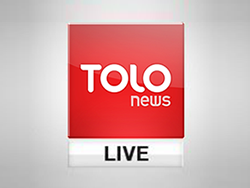With the arrival of Eid, the price of livestock has risen by 40 percent in Kabul's markets.
During Eid celebrations, most families sacrifice an animal - usually a goat, sheep or cow - to emulate Abraham's willingness to sacrifice his son Ismail to show dedication to God. The mass butchering results in a dramatic spike in demand for livestock animals.
This year, a number of residents have bemoaned the lack of supervision by the government when it comes to livestock trade, which they imply would lead to more stable prices.
However, most livestock sellers say that most of the animals are brought in from abroad and high fees and extortion on the roads into the capital are the main reason for the price inflation.
Afghanistan Chamber of Commerce and Industries (ACCI) has confirmed that 80 percent of livestock animals sold in Kabul are imported from Pakistan and many illegal taxes and extortion schemes are enacted along the way.
"The importers of livestock are facing extortion by different groups that take money from them, so these sellers add the expenses to the home price of livestock," Khan Jan Alkozai, first vice-chairman of ICC told TOLOnews.
In most Islamic countries around world the price of livestock is measured according to their weight, and that alone. With the arrival of Eid, there also usually special markets opened outside of cities for the trade and butchering of livestock. However, no such system is set-up in Afghanistan so the purchasing and slaughtering of the animals sacrificed during Eid occurs in the city, creating unsanitary waste and airborne bacteria that can lead to illness.



